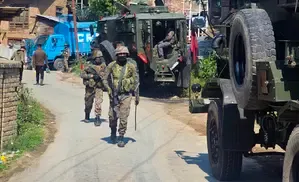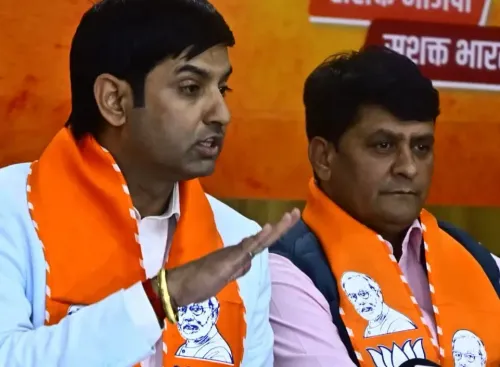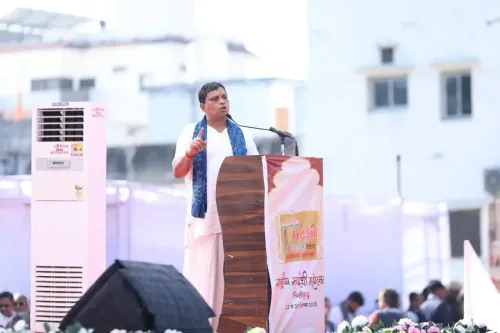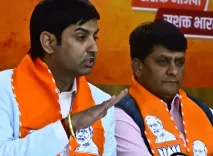Why is India on high alert after the Pahalgam massacre?

Synopsis
Key Takeaways
- High-level meeting convened to address internal security.
- Focus on tightening border security and enhancing counter-terror capabilities.
- Suspension of Indus Waters Treaty with Pakistan as a significant diplomatic response.
- Political unity across major parties to combat terrorism.
- Nation remains on high alert following the attack.
New Delhi, April 29 (NationPress) Following the tragic terror incident in Pahalgam that resulted in the deaths of 26 people, predominantly tourists, Union Home Secretary Govind Mohan held an urgent high-level conference on Tuesday to evaluate the internal security landscape and address the shifting threat dynamics.
Attendees included prominent security figures such as Director General of the Border Security Force (BSF) Daljit Singh Chaudhary, Director General of the National Security Guard (NSG) Brighu Srinivasan, and Director General of the Assam Rifles Lt Gen Vikas Lakhera. Additional key representatives from various paramilitary units, including Additional Director General of the Sashastra Seema Bal (SSB) Anupama Nilekar Chandra, also participated in the discussions.
As per sources, the talks concentrated on reinforcing border security, improving counter-terrorism capabilities, and fostering intelligence collaboration among forces, especially in light of the increased tensions arising from the April 22 assault in Jammu and Kashmir's Pahalgam.
The BSF is responsible for securing India's frontiers with Pakistan and Bangladesh, while the SSB safeguards the borders with Nepal and Bhutan, and the Assam Rifles oversee the India-Myanmar border. The NSG, recognized as India's elite counter-terrorism unit, specializes in high-risk missions and urban hostage rescue operations.
The Pahalgam attack has prompted rapid and significant policy shifts from the central government. In a decisive diplomatic response, the Cabinet Committee on Security (CCS) opted to suspend the 1960 Indus Waters Treaty, accusing Pakistan of breaching its terms. Additionally, the CCS mandated that all Pakistani nationals—except those holding diplomatic, official, or long-term visas—must leave the country by April 29.
In light of this CCS directive, Union Home Minister Amit Shah reached out to chief ministers nationwide, urging them to enforce compliance with the exit order for Pakistani nationals. Following this, Union Home Secretary Govind Mohan conducted a virtual meeting with state chief secretaries to ensure the execution of the order before the deadline.
Prime Minister Narendra Modi, in a strongly articulated message on April 24, pledged to bring the perpetrators of the Pahalgam attack and their supporters to justice. “We will identify, pursue, and punish every terrorist and their enablers. India will go to any length to protect its people,” he affirmed.
In a rare display of political unity, leaders from all major political factions expressed their unwavering support for the government during an all-party gathering convened on the same day. This collective determination showcased a national consensus on taking decisive action against terrorism and cross-border extremism.
As security forces ramp up their initiatives and diplomatic efforts intensify, the nation remains on high alert, with vigilance and readiness at the forefront of India’s response to this latest threat.










